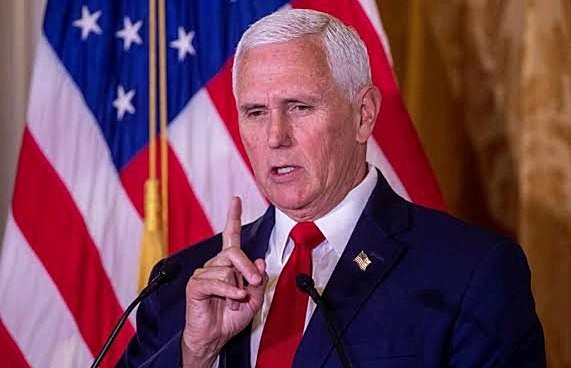 The political discussion over U.S. policy towards the International Criminal Court (ICC) and its treatment of Israeli officials intensified after former Vice President Mike Pence sent out a strong tweet criticizing the Biden administration’s position on the court.CONTINUE FULL READING>>>>>
The political discussion over U.S. policy towards the International Criminal Court (ICC) and its treatment of Israeli officials intensified after former Vice President Mike Pence sent out a strong tweet criticizing the Biden administration’s position on the court.CONTINUE FULL READING>>>>>
In a retweet of Axios journalist Barak Ravid, who had reported the White House’s position against imposing sanctions on the ICC, Pence made his position unequivocally clear.
“Wrong Answer, Joe. ICC arrest warrants on Israeli leaders are a disgrace. Sanction the ICC Now! America stands with Israel,” Pence tweeted from his verified account.
Pence’s statement comes in response to the Biden administration’s decision to refrain from sanctioning the ICC, despite calls from various political figures and organizations who argue that the court’s actions against Israeli leaders are unjust and politically motivated. The ICC has faced significant criticism from Israel and its allies for its investigations into alleged war crimes in the Palestinian territories, which include charges against Israeli military and political officials.
The former Vice President’s comment highlights a deepening rift within U.S. politics over how to engage with international bodies like the ICC. Pence’s call for immediate sanctions reflects a more hardline approach that aligns with his strong pro-Israel stance, a position he has consistently maintained throughout his political career. His statement aims to galvanize support from conservative and pro-Israel constituencies, suggesting that any perceived leniency towards the ICC is unacceptable.
The Biden administration, on the other hand, has signaled a preference for dialogue and engagement rather than punitive measures. This position has been articulated by White House officials who argue that sanctions are “not the right answer,” suggesting a belief that collaboration and diplomacy could yield better outcomes in influencing the ICC’s decisions.CONTINUE FULL READING>>>>>
